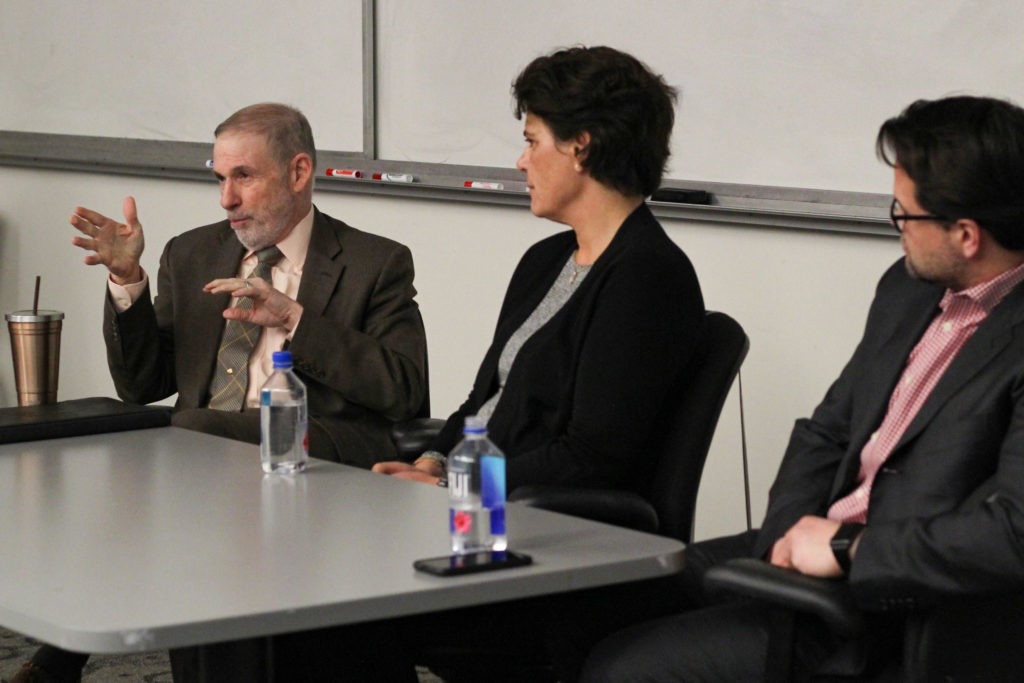Three space policy experts representing the public, private, domestic and foreign aspects of space policy spoke at a panel at the Elliott School of International Affairs Monday about the challenges and consequences of space exploration and travel – both now and in the future.
The event, hosted by GW’s chapter of Delta Phi Epsilon, a national foreign service fraternity, was titled “The Frontier: International Cooperation and Development in Space.”
Panelists included Douglas Loverro, the former deputy assistant secretary of defense for space policy, Micheline Tabache, the head of the European Space Agency’s D.C. office and Peter Marquez, the vice president for global engagement at Planetary Resources, an asteroid mining company.
In case you missed it, here are some highlights from the event:
1. The role of government in space policy
After DPE President Andrew Lama asked the panel about the role of political elections and changing political attitudes on space policy, panelists said most nations follow a consistent course in determining space policy that is disconnected from politics.
“Space is one of those apolitical things, where everybody has decided we want to go up and not down, we want to go forward, not back. We may change the speed at which you pursue it or the trajectory by which you get there,” Loverro said. “But in general it tends to be a fairly apolitical situation.”
The experts said the public sector would remain a prominent player in space research, despite gains by private corporations like Elon Musk’s SpaceX and Richard Branson’s Virgin Galactic in recent years. Government funding for space travel has become less of a priority in the U.S. over the last several years.
“There always going to be a place for the public sector, as well. Some of these things don’t have a profit, per se,” Loverro said. “The actual profit to be made is the sparking of the imagination of young citizens who will want to go ahead and go into high technical fields and create technology of the future.”
2. The future of the private sector
Despite the apparent conflict between the public and private sectors of space travel, the panelists said there would have to be agreement between the two sectors given the complexities of the industry.
Marquez said investing in spaceflight was profitable for both sectors because satellites in space improve data analytics, a valuable resource for a host of industries.
“It’s the back-end part of it,” he said. “If I can take a bunch of data and put it all together and find out that if I short the orange crop coming up in three months, I’m going to make a ton of money — that’s something somebody will pay for.”
3. National security in space
Over the course of the night, panelists repeatedly stressed that military and non-military space policy ought to be managed separately because national security concerns hinder civil and commercial spaceflight research.
“The counterintuitive fact is that the single nation whose government constrains the commercial space industry more than everybody else is the United States of America. We’re terrible at that, because we view space through a national security lens, because that’s where we started,” Loverro said.
Loverro, hailing from a background in the Department of Defense, added that policymakers should come to terms with the fact that war in space is likely inevitable.
“There will be conflict in space. No question about it,” Loverro said. “We need to stop talking about trying to prevent war in space. What we need to do is talk about, ‘How do we prevent war in space from affecting the usefulness of space?’”




